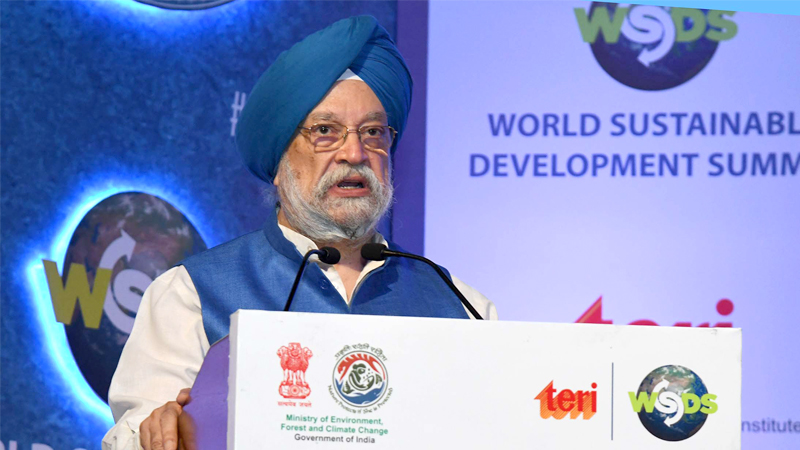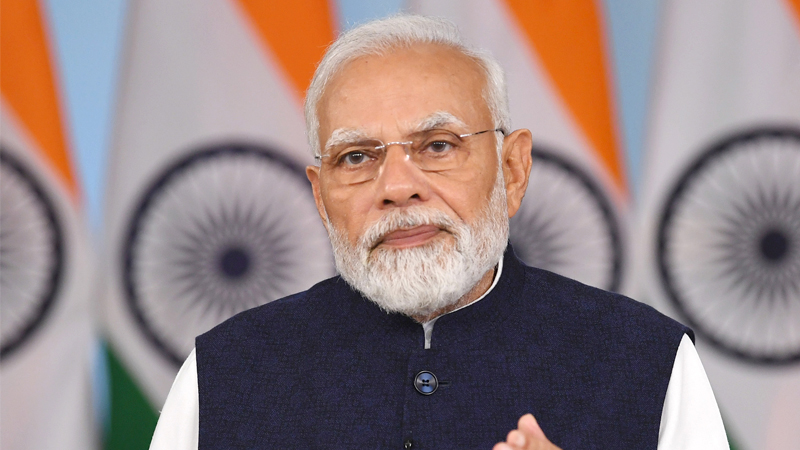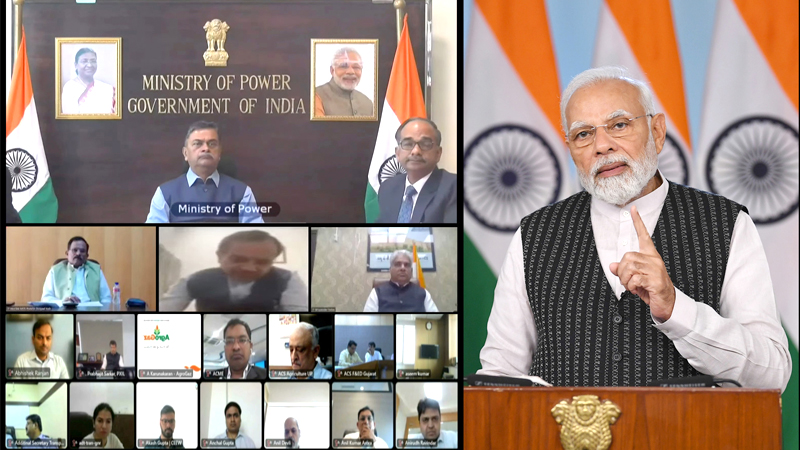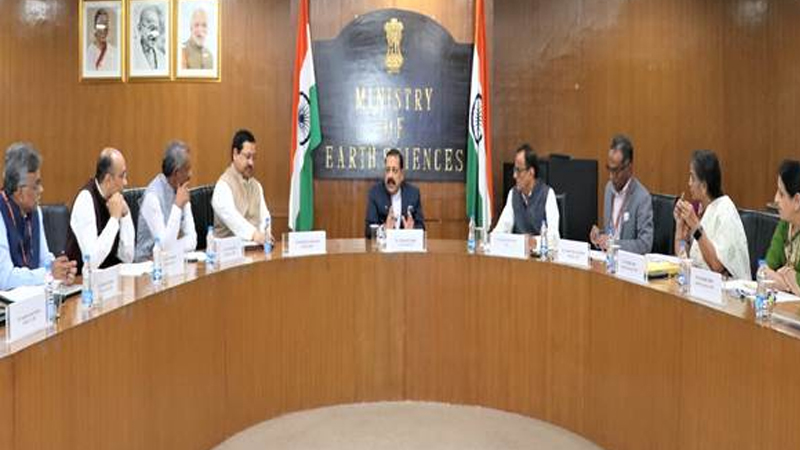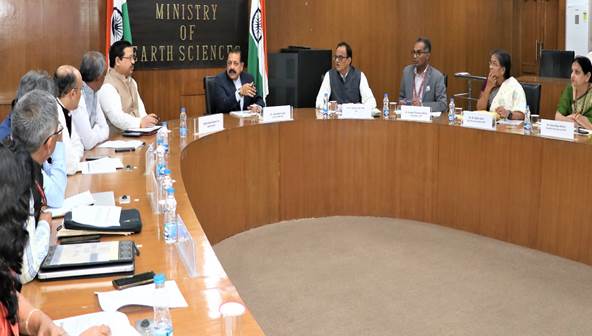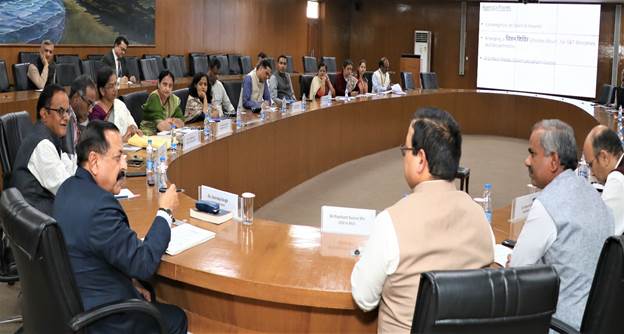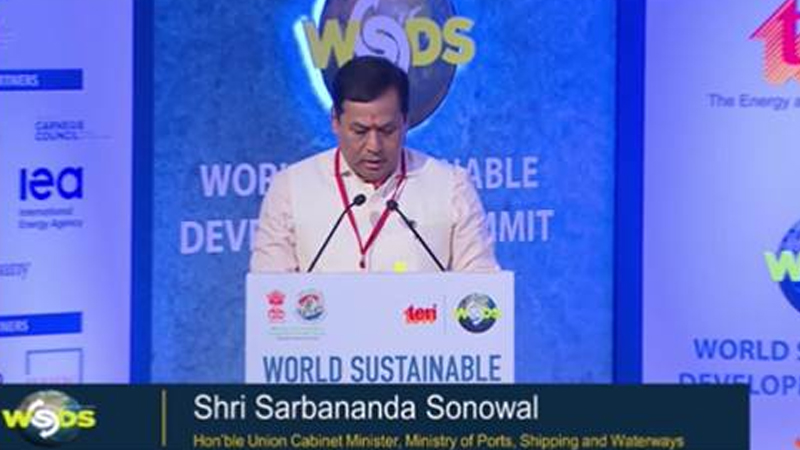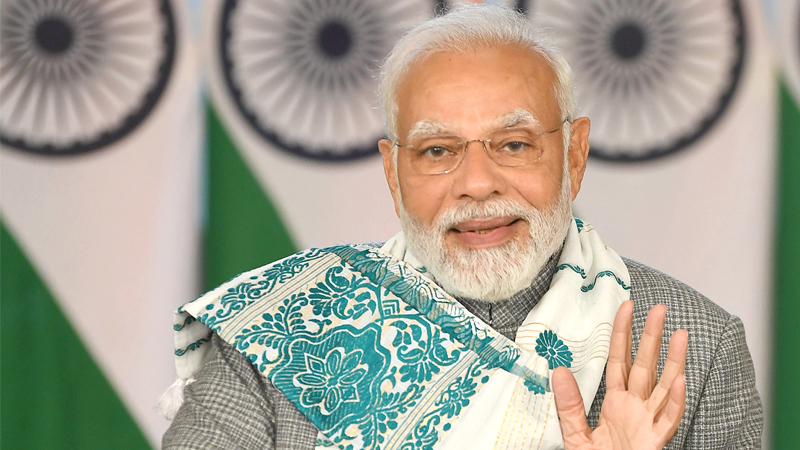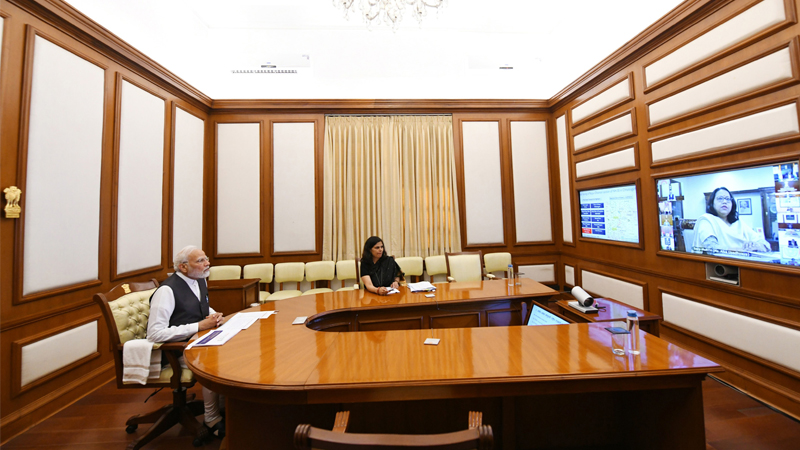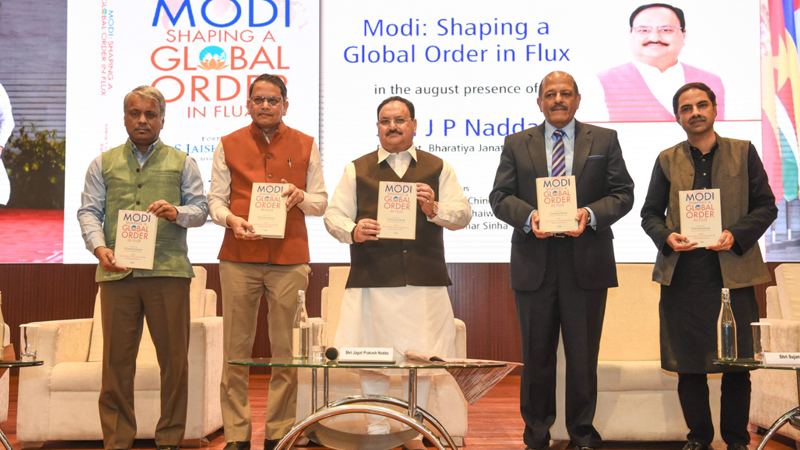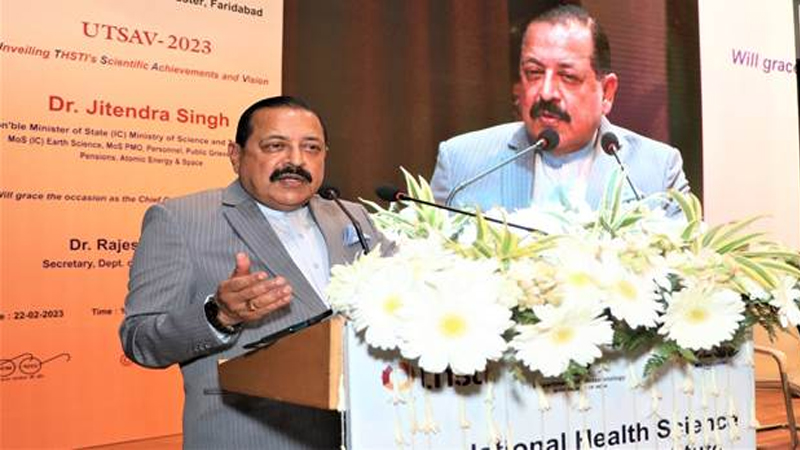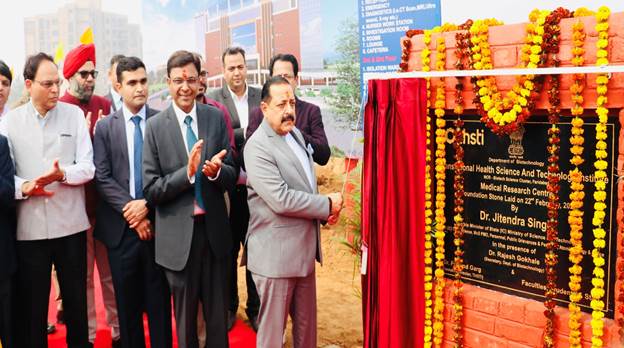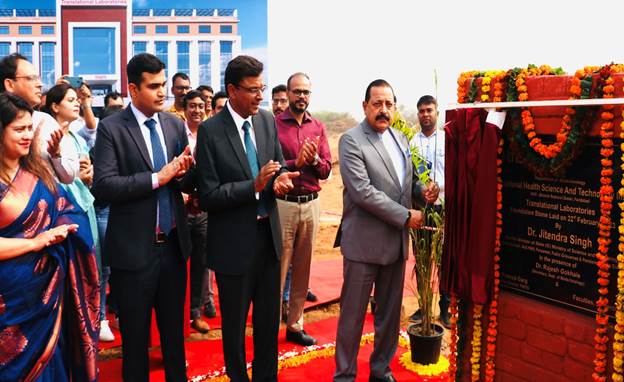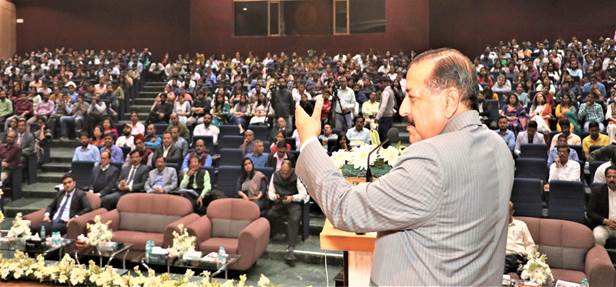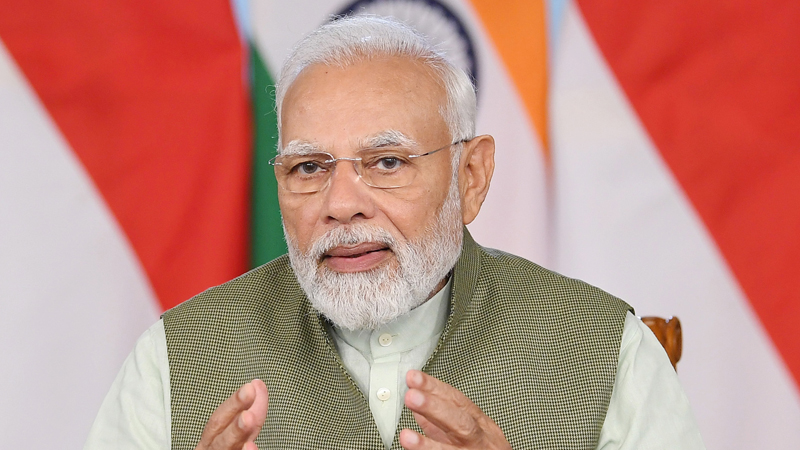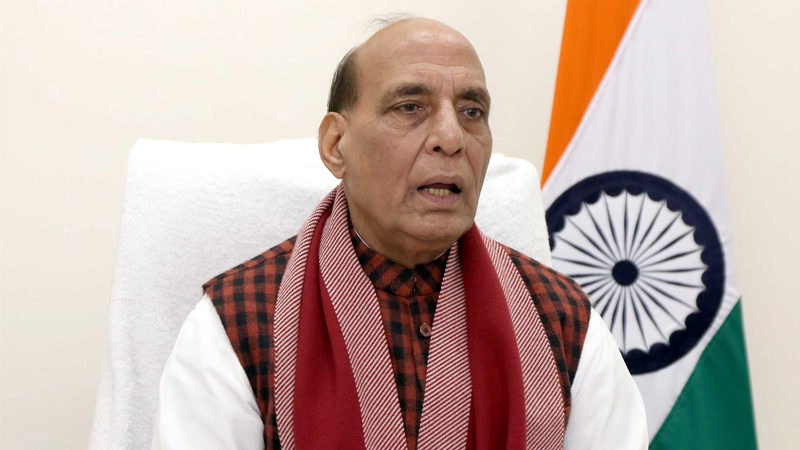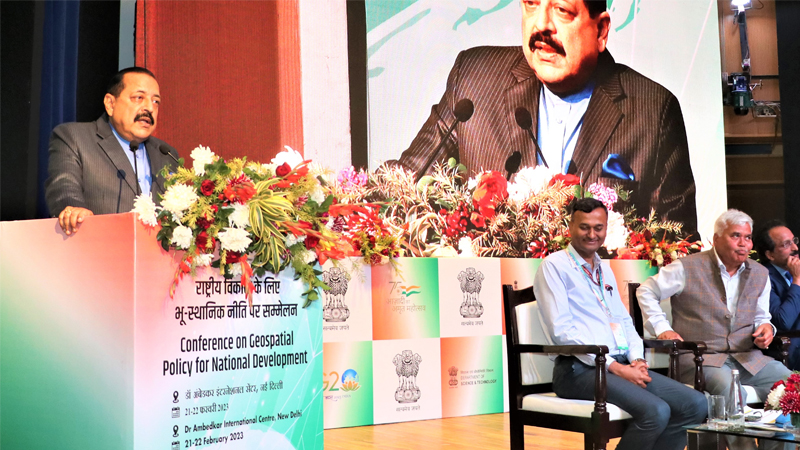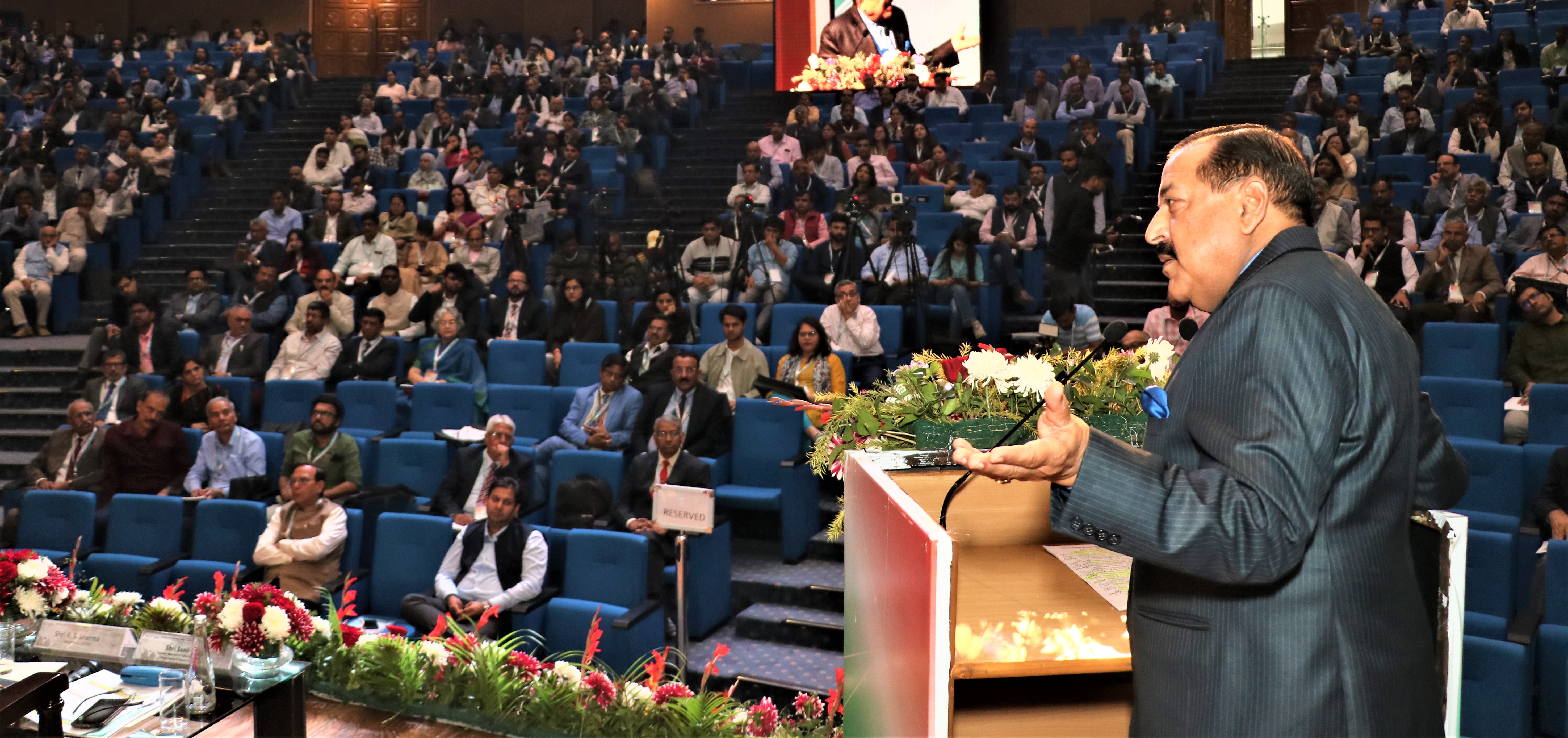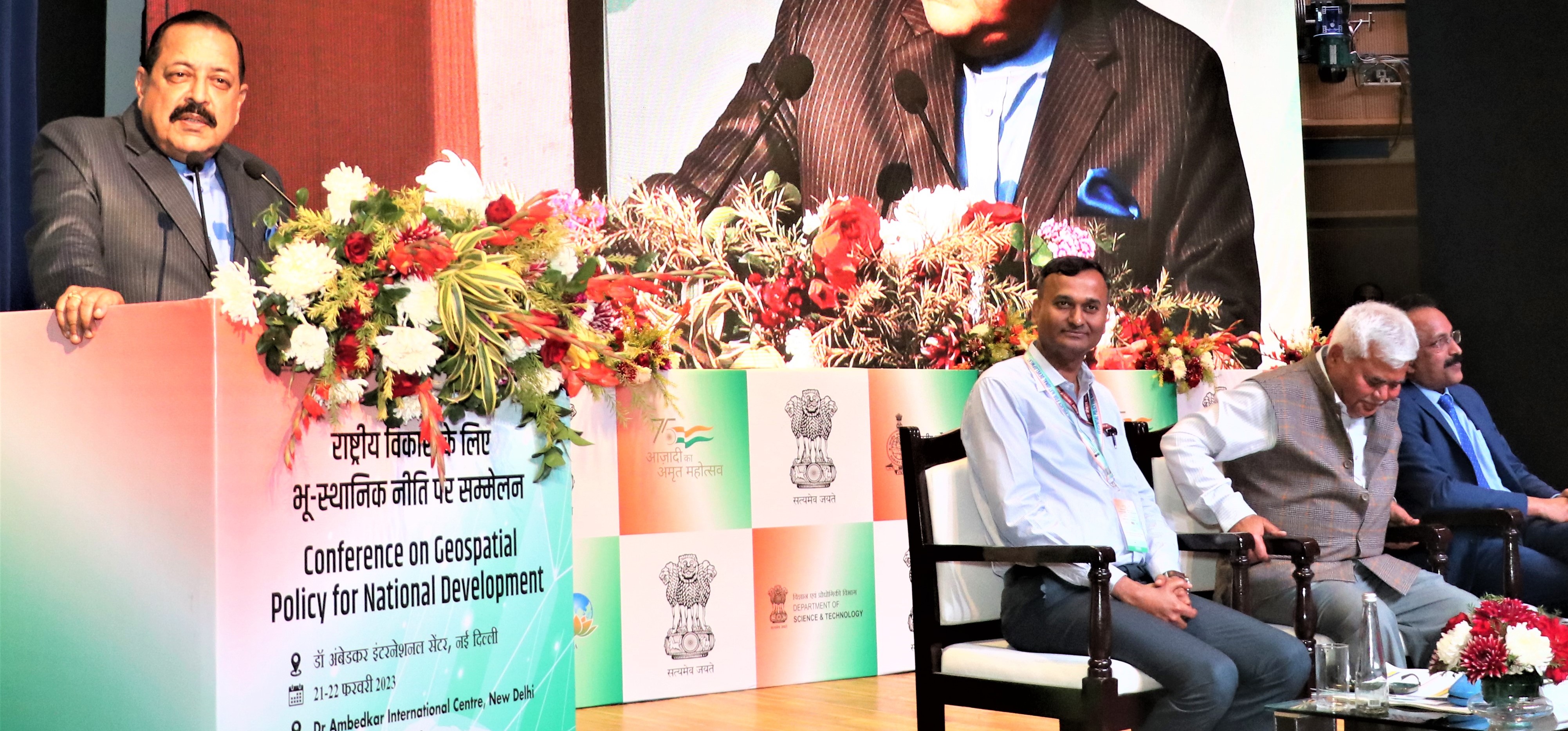The Prime Minister, Shri Narendra Modi addressed the post-budget webinar on ‘Green Growth’ today. It is the first of a series of 12 post-budget webinars organized by the government to seek ideas and suggestions for the effective implementation of the initiatives announced in the Union Budget 2023.
Addressing the gathering, the Prime Minister remarked that all the budgets tabled in the country after 2014 have been forwarding new-age reforms apart from finding solutions to the challenges faced in the present day.
The Prime Minister outlined three pillars for green growth and energy transmission. First, increasing the production of renewable energy; second, reducing the use of fossil fuel in the economy; and finally, rapidly moving towards a gas-based economy in the country. This strategy has underlined the announcements of measures like ethanol blending, PM KUSUM Yojana, incentives for solar manufacturing, rooftop solar scheme, coal gasification, and battery storage in the Budgets of the past few years. Underlining the significant announcements in previous years’ budgets, the Prime Minister highlighted schemes such as green credit for industries, PM Pranam Yojna for farmers, Gobardhan Yojna for villages, vehicle scrapping policy for cities, Green Hydrogen and wetland conservation in this year’s budget. The Prime Minister underlined that these announcements lay the foundation stone and pave the way for future generations.
The Prime Minister said that India’s commanding position in the renewable energy space will ensure a commensurate change in the world. “This Budget will play a key role in establishing India as a lead player in the global green energy market. That is why, today, I invite every stakeholder of the energy world to invest in India”, the Prime Minister said. Referring to the global efforts for diversification of the energy supply chain, the Prime Minister said that this Budget has given a great opportunity to every green energy investor to invest in India. This will also be very useful for the startups in the sector, he added.
“India has been the fastest when it comes to renewable energy capacity addition among major economies since 2014”, the Prime Minister said. He further added that India’s track record shows its capability to achieve the objectives before time when it comes to renewable energy resources. The Prime Minister informed that India achieved the target of 40% contributions from non-fossil fuels in the installed electricity capacity 9 years before the target date. He also mentioned that India achieved the target of 10% ethanol blending in petrol 5 months before time and emphasised that the nation strives to achieve 20% ethanol blending in petrol by 2025-26 instead of 2030. He underlined that the capacity of 500 GW will be achieved by 2030. Recalling the launch of E20 fuel, the Prime Minister noted the government’s emphasis on biofuels and said that it has brought new opportunities for investors. He observed the abundance of agri-waste in the country and urged the investors to not miss the opportunity of setting up ethanol plants in every corner of the country. “The potential of solar, wind and biogas in India is no less than any gold mine or oil field for our private sector”, the Prime Minister said.
The Prime Minister said that under the National Green Hydrogen Mission, India is moving with a target of production of 5 MMT green hydrogen. An allocation of Rs 19 thousand crores has been made to incentivize the private sector in this field. He also touched upon other opportunities such as electrolyzer manufacturing, green steel manufacturing and long-haul fuel cells.
The Prime Minister also informed that India has the potential of producing 10 thousand million cubic metres of biogas from Gobar (cow dung) and 1.5 lakh cubic meter gas which can contribute up to 8% to the city gas distribution in the country. “Because of these possibilities, today the Gobardhan Yojana is an important component of India’s biofuel strategy. In this budget, the government has announced plans to set up 500 new plants under the Gobardhan Yojana. These are not like old-fashioned plants. The government will spend Rs 10,000 crore on these modern plants”, he added. The private sector is getting attractive incentives for producing CBG from agri-waste and municipal solid waste, the Prime Minister informed.
Throwing light on India’s vehicle scrapping policy the Prime Minister stressed that it is a crucial part of the green growth strategy. He informed that the government has made provisions of Rs 3000 crores in this year’s budget to scrap around 3 lakh vehicles owned by Central and State governments that are older than 15 years including police vehicles, ambulances and buses. “Vehicle Scrapping is going to become a huge market”, said the Prime Minister, following the principle of Reuse, Recycle and Recovery. He also emphasised that it gives new strength to our circular economy and urged the youth of India to join various means of the circular economy.
The Prime Minister said that India has to increase its battery storage capacity to 125-gigawatt hours in the next 6-7 years. The Prime Minister informed that the government has come out with a viability gap funding scheme in this budget to support the battery developers to achieve big goals in this capital-intensive sector.
The Prime Minister also touched upon water-based transport becoming a huge sector in India. He informed that India transports only 5% of its cargo through its coastal route today whereas only 2% of cargo is transported in India through inland waterways. He underlined that the development of waterways in India will give rise to many opportunities for all stakeholders in this field.
Concluding the address, the Prime Minister said that India has huge potential to lead the world when it comes to technology for Green Energy. He emphasised that it will forward the cause of global good apart from generating Green Jobs. “This budget is not only an opportunity, but it also contains the guarantee of our future security”, the Prime Minister said as he urged all stakeholders to act quickly to implement every provision of the budget. “The government stands with you and your suggestions”, the Prime Minister concluded.
Background
The webinar led by the Union Ministry of Power will have six breakout sessions covering both energy and non-energy components of Green Growth. Besides Ministers and Secretaries of concerned Central Government Ministries, a host of stakeholders drawn from state governments, industry, academia & research institutions and the public sector would attend these webinars and contribute through suggestions for better implementation of budgetary announcements.
Green growth is one of the seven top priorities of the Union Budget 2023-24 for ushering green industrial and economic transition, environmentally friendly agriculture and sustainable energy in the country. It will also generate a large number of green jobs. The Union Budget has envisaged a number of projects and initiatives spread across various sectors and ministries viz. Green Hydrogen Mission, Energy Transition, Energy Storage Projects, Renewable Energy Evacuation, Green Credit Program, PM-PRANAM, GOBARdhan Scheme, Bhartiya Prakritik Kheti Bio-Input Resource Centres, MISHTI, Amrit Dharohar, Coastal Shipping and Vehicle Replacement.
Each post-budget webinar will have three sessions. It will start with a plenary opening session which would be addressed by the Prime Minister. This session will be followed by separate breakout sessions on various themes which would take place in parallel. Finally, the ideas from the breakout sessions would be presented during the plenary concluding session. Based on inputs received during the webinar, concerned ministries would prepare a time-bound action plan for the implementation of budget announcements.
The government has undertaken several budgetary reforms in the past few years. The date of the budget was advanced to 1st February so that Ministries and Departments get sufficient time for utilisation of the funds on the ground before the onset of monsoons. Another step towards bringing in reforms in budget implementation was the novel idea of Post Budget Webinars. This idea was conceptualised by the Prime Minister to bring together experts from the public and private sectors, academia, industry and practitioners on the field on a single platform and collaboratively work on implementation strategies across sectors. These webinars were started in 2021 in the spirit of Jan Bhagidari and encourage involvement and ownership of all concerned stakeholders in effective, quick and seamless implementation of the Budget announcements.
The webinars will be focussed on synergising efforts of various Ministers and Departments and all concerned stakeholders towards preparation of action plans with quarterly targets so that the implementation is front ended and smooth with the timely achievement of intended outcomes. They are being held virtually to ensure wide participation. They will be attended by concerned Union Ministers, key stakeholders from Government departments, Regulators, Academia, Trade and Industry associations etc.


